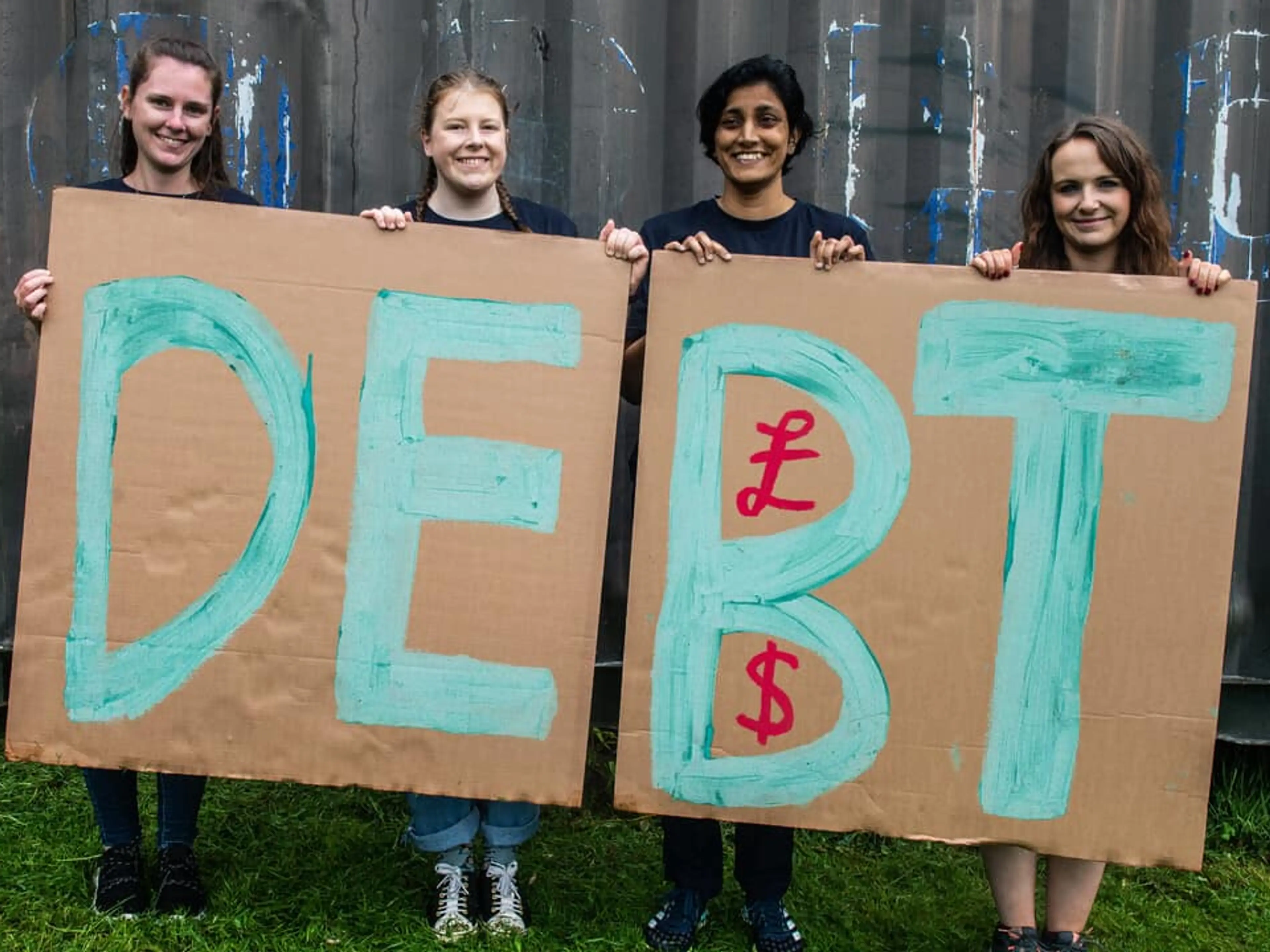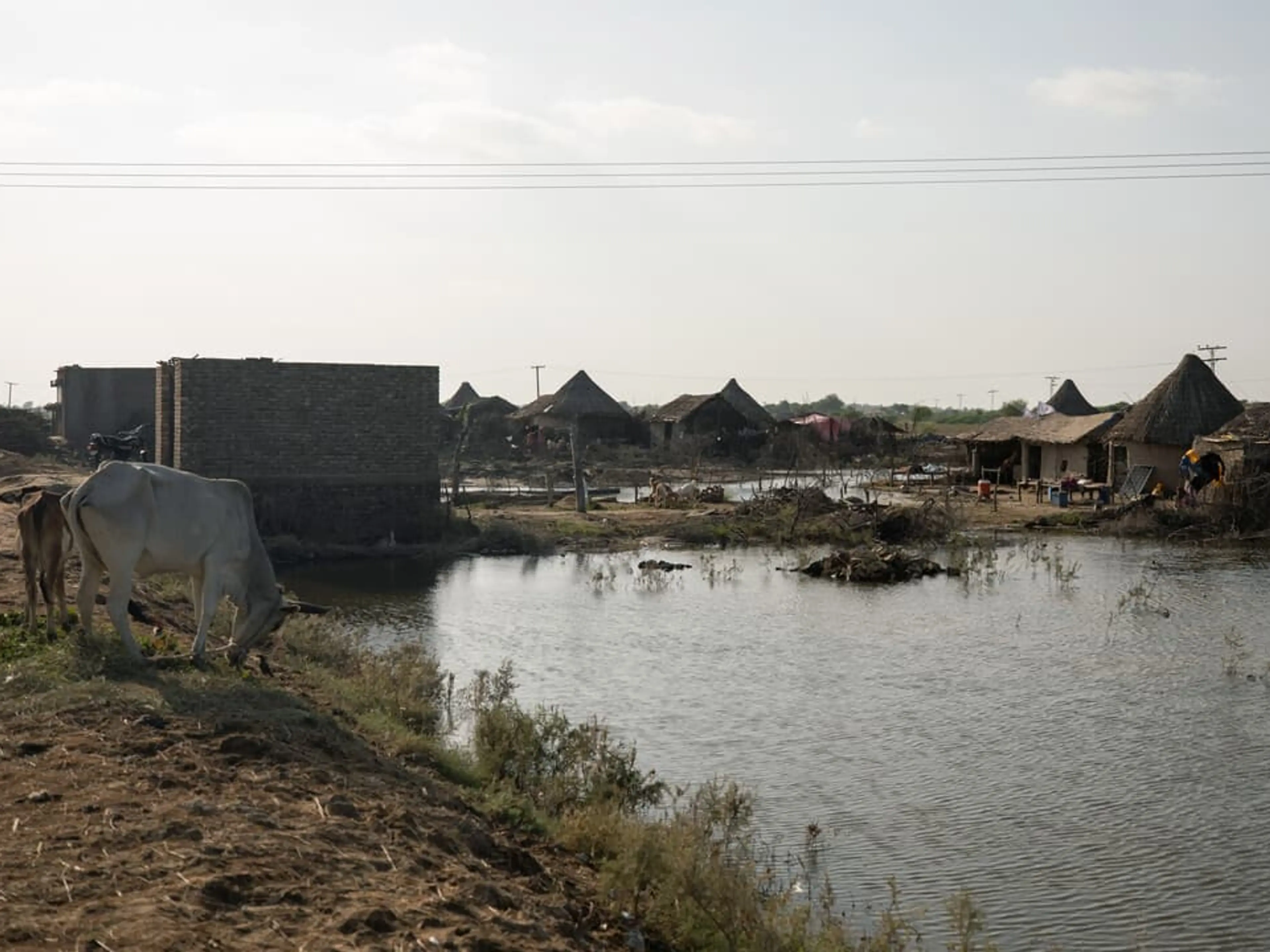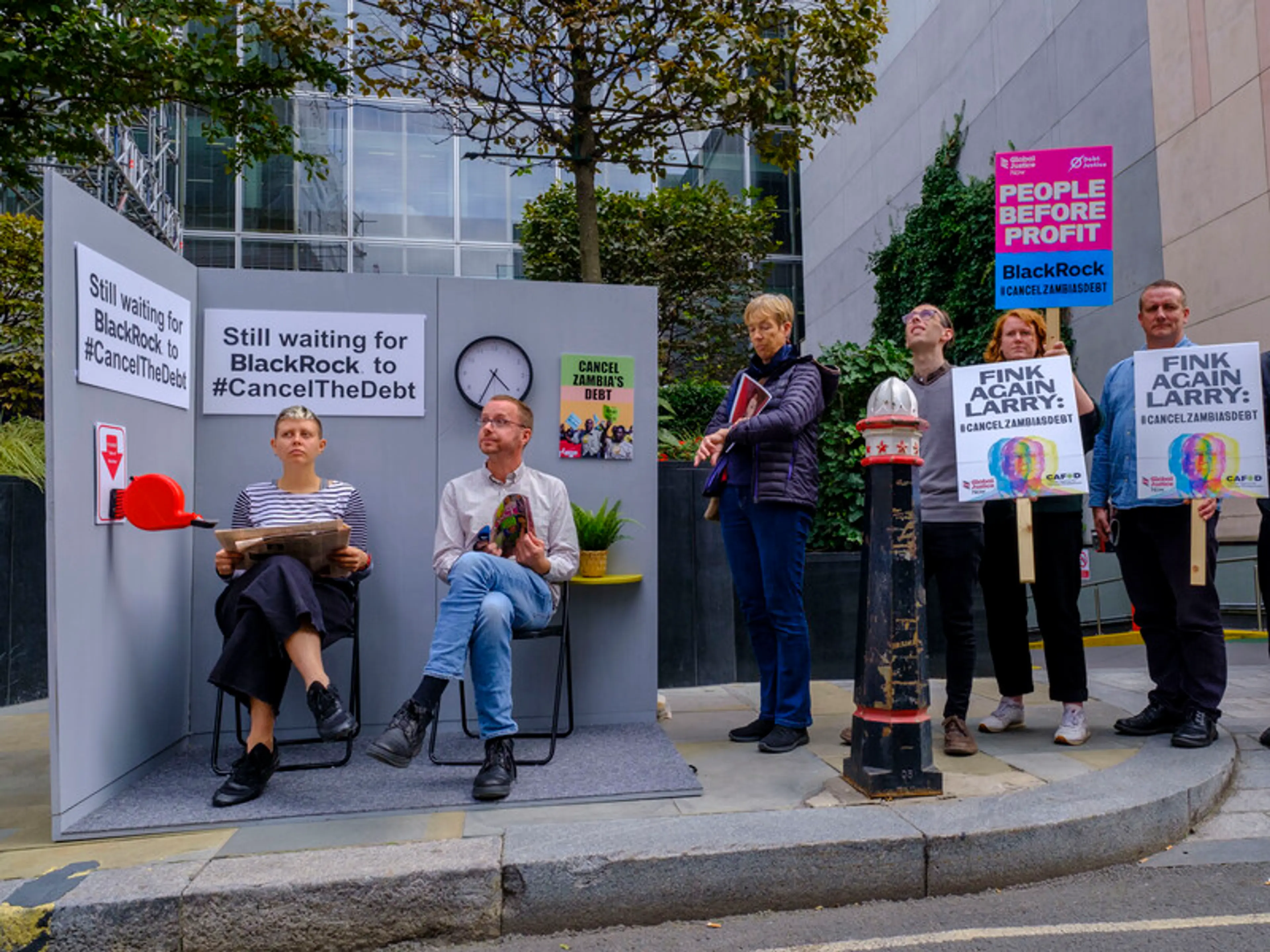Email your MP
We can push for a new law to make cowboy lenders cancel debt. Ask your MP to write to the International Development Minister.

We need to cancel the debt so that countries can tackle the climate crisis
“[…] we cannot ignore one fundamental fact, namely that the many moral, social, political and economic crises we are experiencing are all interconnected, and what we see as isolated problems are actually causes and effects of one another.”
So said Pope Francis in his message for New Year’s Day 2023 – the Church’s World Day of Peace.
The idea that “everything is connected” is a theme the Holy Father has returned to time and again as Pope. The Pope recognises that the struggles our global family and our common home are facing have roots in the same causes, and that to overcome them, we need to tackle these crises side by side.
The climate crisis and the debt crisis are stark examples. Countries need money to prepare for climate disasters and rebuild when they strike, yet many of the countries hardest hit are being forced to pay huge debts – taking money away from efforts to address the climate emergency.
That’s why in 2023, we’re calling for leaders to draw the connections between climate and debt justice and tackle the climate and debt crises together.
We can push for a new law to make cowboy lenders cancel debt. Ask your MP to write to the International Development Minister.
From floods, hurricanes and droughts to lost crops, homes and livelihoods, millions of people around the world are facing the reality of the climate crisis.
But rather than being able to spend the money needed on rebuilding from these climate disasters – and preparing for future catastrophes – governments in low-income countries are being forced to pay billions of dollars in debts, and spiralling interest payments, to lenders in rich countries.
Many of the countries most vulnerable to the effects of the climate emergency are those that are also facing a debt crisis. In fact, countries across the global south are currently spending five times more on debt repayments than they are on tackling the impacts of the climate crisis.
What make this injustice even more outrageous is that the countries on the frontline of the climate crisis are those that have contributed least to causing it.

Rebuilding from the 2022 floods will cost Pakistan billions of dollars at the same time as the country owes billions in debt to foreign lenders
Pakistan was responsible for barely 0.6 per cent of greenhouse gases emitted by all countries in 2021. Despite its relatively low contribution to global emissions, it has faced some of the most devastating impacts of the climate crisis.
The country was hit by monumental floods in which more than 1,700 people lost their lives. The World Bank estimates that the floods left up to nine million people at risk of being pushed below the poverty line.
The floods caused $14.9bn of damage and $15.2bn of economic losses, and the World Bank estimates the cost of rebuilding will be at least $16.3bn.
At the same time, campaign group Debt Justice has calculated that Pakistan is due to spend $22.5bn on debt repayments. This is money the country will be unable to spend on efforts to rebuild from the floods and to prepare for future catastrophes.
Along with collecting taxes, all governments borrow money to pay for key public services such as their health and education systems.
Lenders often charge governments in low- and middle-income countries higher interest rates because they believe there is a greater risk that these governments will be unable to pay back those debts. Being paid the extra interest that comes with higher interest rates means that lenders’ profits can be bigger.
The global economy is the wild west for countries in debt.
— Debt Justice (@debtjustice) May 13, 2023
There is a huge power imbalance with private lenders, which leaves countries in distress, and these cowboy lenders laughing all the way to the bank...#StopCowboyLenders and Take Action
👉https://t.co/LtcV66iWZ5 pic.twitter.com/geGho2BOhZ
Events in recent years have left many of these countries unable to pay back debts. Economic shocks such as the Covid-19 pandemic and climate disasters such as floods and cyclones have slashed the revenues that governments in many low- and middle-income countries have been able to collect.
This reduced revenue makes it difficult to repay debts to these private lenders.

It’s crucial we take this chance to push for action - ask your MP to write to the International Development Minister.
No country should have to choose between rebuilding from a disaster or face being sued by lenders refusing to cancel debts. As Pope Francis has reminded finance leaders, “It is not right to demand or expect payment when the effect would be… hunger and despair for entire peoples”.
Yet big banks and hedge funds are holding low- and middle-income countries to ransom. They’re acting like cowboys – making millions from interest payments while governments struggle to pay for measures to tackle the climate crisis.
The UK is in a special position to stop this.
Ninety per cent of contracts between private lenders and governments state that they’re subject to English law. This means that lenders can threaten to take countries facing a debt crisis to court in the UK if they fail to repay debts and huge interest payments.
A group of MPs has called for the government to look at changing the law to prevent lenders from forcing countries to have to make the impossible choice between paying debts and paying for public services.
We want to make sure all MPs are aware of the connections between the climate crisis and the debt crisis and to let them know what their colleagues have called for.
So join our campaign and add your voice for calls to Stop Cowboy Lenders so that countries don’t have to face the choice between paying huge debt bills and tackling the climate crisis.

Thousands of campaigners have called for BlackRock to cancel Zambia's debt
Despite contributing just 0.01 per cent of global greenhouse gas emissions since the industrial revolution, Zambia is on the frontline of the climate crisis, facing devastating floods, extreme temperatures and water shortages that have made it more difficult for people to access food.
Zambia applied for its debts to be restructured in 2021 – a request for its debts to be cancelled in whole or part, or to allow a longer time frame for repayments
But BlackRock, one of Zambia’s largest private creditors, has so far refused to cancel the amount of debt the International Monetary Fund has said is necessary to make Zambia’s debt sustainable.
BlackRock is lending to Zambia at interest rates as high as nine per cent. Debt Justice estimates that BlackRock could make up to 110 per cent profit if the debts are repaid in full.